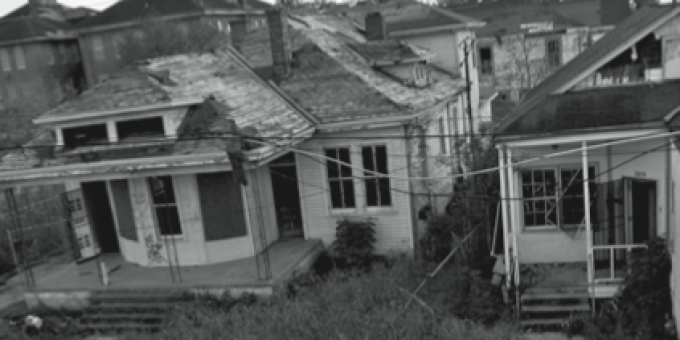
Failure to Respond
Hurricane Katrina, the Indian Ocean tsunami, Tropical Storm Irene, and other disasters are generating debates about relief efforts. Who gets help and why? How do programs allocate resources?
Emily Chamlee-Wright and Virgil Henry Storr, writing in Public Choice in 2010, suggest that victims of Katrina had very specific expectations of how government should respond to their plight. While residents of New Orleans’ Lower Ninth Ward didn’t expect the government to make victims whole again, they saw state aid as a contractual obligation; government’s failure to provide sufficient help was a breach of that contract. And contrary to media claims, most requests for assistance were modest.
It turns out that racial minorities received less state aid in Katrina’s aftermath than whites did—and far less than they needed to rebuild their homes. Daniel Aldrich’s 2010 Social Science Quarterly article demonstrates much the same in the aftermath of the Indian Ocean tsunami. Caste, location, wealth, and family status all influenced who did or did not receive aid. Disasters didn’t discriminate, but disaster responders did.
How blame is attributed also shapes aid and recovery efforts, according to a 2011 article in Race and Social Problems. Euro-Americans were likely to blame poor government response post-Katrina on incompetent or corrupt bureaucrats and politicians, according to Amy Ai and her coauthors. Blacks, on other hand, were likely to see the problem as situational, varying by victims’ race.
Those who attributed the destruction of New Orleans to natural forces were less likely to offer aid or volunteer to help those in need. Zdravko Marjanovic, C. Ward Struthers, and Esther Greenglass say that if participants believed that the disaster was human-made, they were more likely to believe that humans should play a role in prevention or mitigation (Analyses of Social Issues and Public Policy, 2012).
Taken together this new research shows that the social and governmental response to disaster is more nuanced than scholars and policy makers believe. Since global warming is likely to increase the severity and frequency of future disasters, figuring out how best to facilitate the process of recovery is a pressing issue.
